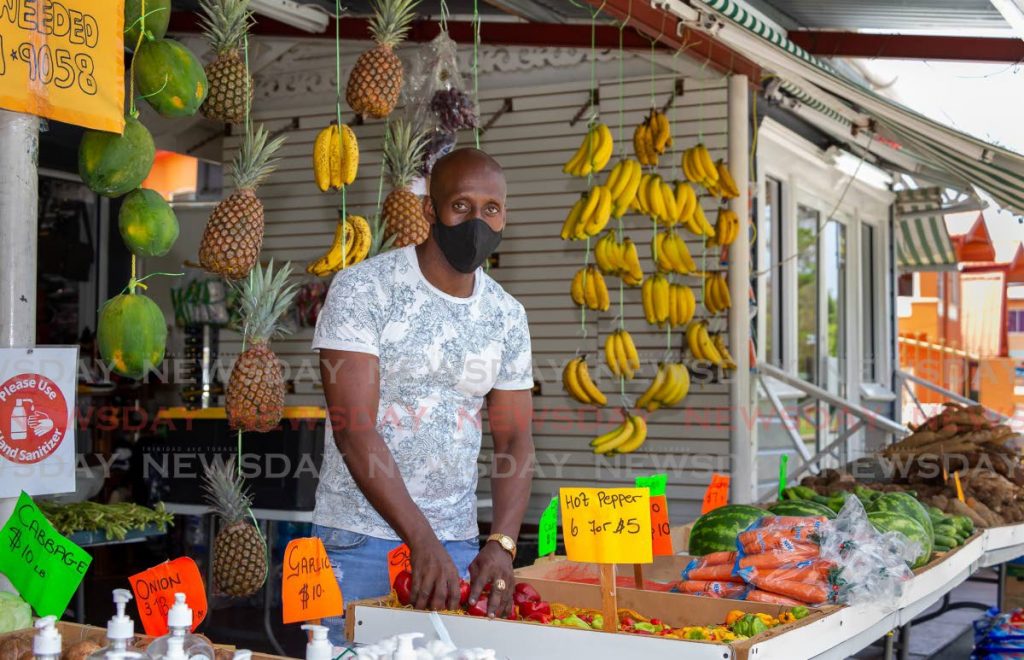The covid19 new normal pioneers

Radical changes in the history of a country caused by “fire, flood or acts of God,” war, revolt, plague, pandemic and prolonged civil disobedience have consequential changes on aspects of social and economic life that are not foreseen before or even during the periods of change themselves.
Even apparently normal technological innovations in communications via cellphones, Zoom, e-mail, and WhatsApp have had far-reaching effects on business and employment which in turn have other far-reaching effects.
Insofar as business, commerce, medicine or the judiciary are concerned, those consequences may include disruption, rejection and civil disobedience as people fight change before acceptance and a new period of stability is reached. It has always been so, throughout history.
We are going through such a period in TT now. While employees, employers, those new applicants wanting to be employed, even those seeking voluntary and unpaid employment, are still looking to operate under the practices, protocols and procedures of yesteryear, the uneasy realisation is dawning that the old ways are not working any more.
Equally it is apparent that those desperately trying to force social effects of pandemic change into disciplined and controllable channels have not been able to foresee the consequential changes they have put in place. It is like a multi-directional game of dominoes.
One such decision, a most obvious one, made, I am sure, with the belief that it was a good idea, was to close places where food is prepared and provided. These range from the traditional “cook shops” that cater to field and shop-floor workers to mobile food suppliers, street vendors, doubles vendors, fast-food suppliers – activities that go so deeply into the culture and traditions of Trini society that they are not actually seen to be “business” activity, especially by decision-makers who do not actually use them.
Like many other traditional entrepreneurial activities, they do not only support the livelihood of the poorest segment of the population; they are the social support of the elderly, those ineligible for grants who have never registered on any government social services system, single mothers not supported by rejecting and righteous parents, religious organisations or by deadbeat “baby fathers.”
Single mothers are the majority of workers in occupations that seldom, if ever, employ as many as five employees at a time: fast-food shops, cleaning contractors, hospitality establishments, “care homes” and a long list of less savoury employments resorted to when the lives of children and elderly parents depend on them.
The offhand advice when asked when this segment of society will be allowed by the well-fed and healthy to resume activity was: “Make sandwiches or cook up something at home.” It was like a blow to the solar plexus to unemployed single parents who can’t afford electricity or gas cylinders, much less rice or enough sandwich bread to feed four children.
I don’t think this is a deliberate attempt to devalue the existence of single mothers (although it does) or destroy family lives and ensure infant malnutrition (although it does). I really believe the panic and desperation of the poor just do not enter the consciousness of those who do not live close to it week after week, and now, month after month. The long-term consequences to TT, though, are going to be dire.
Determined workers still hope for compensation for jobs vanished along with the activities of yesteryear, despite the best efforts of their deeply sympathetic trade union representatives who try to project that profits from three years ago are still available, waiting.
Labour laws and once-emergent issues about workers’ property rights in their jobs don’t even reach the ministry or the Industrial Court, as nothing is left to share out. Banks don’t stop being banks in a pandemic, and if bank employees cut off credit, foreclose on employers’ properties, refuse to extend overdrafts, deny approval for new loans because collateral security has long ago vanished, it is nothing personal. It is just the policy.
If they ever had them, managers’ ownership rights in their jobs have gone as well, because share ownership in bankrupt investments amounts to little but memories. The long-term consequences of that are equally far-reaching.
There is nowhere to run to. Other borders, like ours, are closed to economic migrants.
But Trinis are inventive and resilient.
Clever people, including those living in apartments, are learning to grow edible greens in pots and window boxes. Even a few square metres of land, enough to plant some root crops, helps and those without land but with access to water are feeding entire families on fresh vegetables from hydroponics, which they take to farmers’ markets, and make a hefty profit.
The world has changed. Jobs aren’t waiting for diplomas, they are waiting for creators.
Engineering, IT and science graduates are using technologies that enable them to work for people in other countries over the internet. The number of knowledge workers offering their skills online is growing, using what resources they have at hand: their skills and their computers. New novels, poems and learned research papers are being published on paper and online, establishing reputations. Designers are designing and musicians are composing.
It looks as though the shock, the denial the grief and bewilderment that engulfed us over the past year are encouraging natural Trini resilience to re-emerge. The uncomplaining have learned not to expect government support. Survivors know how to use acceptance of reality, determination, innovation, impatience and new energies as they fight back and forge ahead. We have learned to live with hurricanes, floods, forest fires, earthquakes.
Enterprising young people are insisting that we can live with covid19, as our ancestors did with other acts of God. Are we developing a breed of new normal pioneers?


Comments
"The covid19 new normal pioneers"